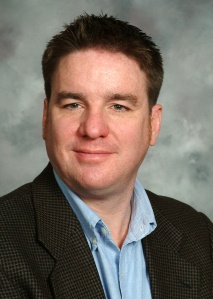Professor Beery: With Justice Kennedy’s Retirement Enter a New Era of Jurisprudence

Cooley Law School Professor Brendan Beery wrote this op-ed for Attorney At Law Magazine. This article has been republished with the magazine's permission.
Anthony M. Kennedy has announced that he will retire from the Supreme Court, and Democrats are powerless to stop Donald Trump from replacing him now that Republicans killed the filibuster in the Senate (during the fight over Neil Gorsuch, Trump’s first Supreme Court pick). Kennedy has been the swing vote on the Court, especially as to hot-button social issues, and his departure will mean tectonic shifts in our nation’s jurisprudence. Trump will likely appoint a young, well-vetted social conservative.

Social Issues
Three issues will be front and center: reproductive rights, including a woman’s right to terminate a pregnancy under Roe v. Wade; affirmative-action programs at public universities and in public employment; and equality for LGBTQ Americans, including rights associated with same-sex marriage or family arrangements.
On each of those issues, the Court sat on a razor’s edge, with Kennedy standing between the Court’s four liberal justices and the Court’s four socially conservative justices. Roe v. Wade may be overturned or curtailed. Public affirmative-action programs designed to boost minority representation may be struck down. And LGBTQ Americans who wish to marry or adopt children should do so soon, given that Obergefell v. Hodges, the same-sex marriage case authored by Kennedy himself, was a 5-4 decision.
Constitutional Interpretation
More broadly, Justice Kennedy tended to see the Constitution as a living and evolving document whose language should be interpreted in light of our contemporary culture and norms. Given our political climate, Kennedy may be replaced by an originalist (at least on social issues), meaning a justice who will anchor the meaning of the Constitution’s words to the norms prevailing when those words were written. Cruel and unusual punishment, for example, will mean punishment that was unusual in 1791, when the Eighth Amendment took effect. Liberty will encompass that which it encompassed in 1868, when the Fourteenth Amendment took effect.
And Kennedy was the justice who insisted, in cases like Lawrence v Texas, that states not regulate individual moral decisions. With the new justice, we may see states tackling morals issues anew—not just as to LGBTQ issues and reproductive choice, but also a wide range of sexual, marital, and family matters that were off-limits as long as Kennedy was the person making the rules.
Campaign Finance & Business Interests
Kennedy was reliably with the Court’s other four conservatives (Chief Justice Roberts and Justices Thomas, Alito, and Gorsuch) on issues around voting, campaign finance, and labor and business interests, so expect little change there. In those areas, the Court has largely already made its mark: declaring money directed at advocacy to be speech, corporations to be persons for speech purposes, public-union dues to be unacceptable as compelled speech, and partisan gerrymandering to be outside the jurisdiction of courts. On such matters as these, the Court’s trajectory will be steady. As to issues of privacy and morals-based decision making, jurisdiction over those matters will drift from the individual to the state.
Donald Trump ran on a promise to seat pro-life conservatives on the Supreme Court. Voters endorsed the coming rightward turn on the Supreme Court with their votes, and saw fit also to affirm Republican majorities in Congress. So it is not, as so many seem to suggest, that Donald Trump is changing the face of the judiciary. The American people did that, and we enter now a new era that will last a generation or more.
Brendan Beery is a tenured professor at Cooley Law School, where he has taught for 16 years. He teaches Constitutional Law and runs seminars on legal reasoning. He is a three-time winner of the Stanley E. Beattie Teaching Award and a frequent commentator in the media on matters involving law and politics.

